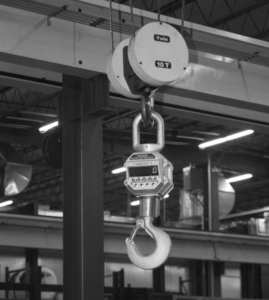Scales and balances are both weighing devices. However, the terms aren’t interchangeable. There are practical and technical differences between scales and balances. Recognizing the distinctions can help you determine which weighing devices will best meet your needs.
How do scales work?
Scales measure weight relevant to the force of gravity, and then take this reading and convert it to mass, such as kilograms. A spring scale, for example, takes this force measurement by either stretching (e.g. hanging scales in a supermarket) or compressing (e.g. bathroom scales). The scale calculates the gravitational force by the amount of stretch or compression in the spring. Today, most scales use load cells, which turn force into measurable electrical signals. Modern scales are versatile and can weigh a variety of objects, including:
-
People and animals
-
Food items
-
Luggage and cargo for transport
-
Stock and inventory
What are the different types of scales?
Industries such as food, manufacturing, health, transportation, mining, and construction all use the following types of scales:
-
Floor scales
-
Truck scales
-
Hanging scales
-
Platform scales
-
Bench scales
-
Counting scales
How do balances work?
Balances don’t measure weight through force as scales do. Balances measure mass by balancing an unknown mass against a known quantity. An example of this is the traditional two-pan balance. Modern electric scales use a force restoration mechanism as a sort of digital counter. Balances are much more sensitive and precise than scales and can measure up to 0.000001 grams. Even the faintest breeze can affect the measurement displayed. Manufacturers equip some balances with a protective glass shield, and the weighing capacity of these devices is limited to small items and amounts.
What are the different types of balances?
Scientific laboratories, universities, medical facilities and research departments all benefit from using precision balances. Types of balances include:
-
Precision balances
-
Laboratory scales
-
Analytical balances
-
Microbalances
Factors to consider when selecting scales and balances
There are several things to think about when buying or renting a weighing device, including:
-
Capacity. Scales can weigh large, awkward and heavy objects while balances are designed to measure only small units.
-
Cost. Due to the sophisticated technology used to make them, balances are more expensive than scales.
-
Readability. Balances offer greater readability and precision than scales.
-
Certification. The government of Canada mandates that every scale and balance that’s used commercially be certified by Measurement Canada.
Precision scales and balances in Calgary
Accurate/Western Scale Co. Ltd. offers a wide range of certified weighing devices to suit every need. For scale certifications as well as scale inspection and scale rental services, contact us at our Calgary location today.





